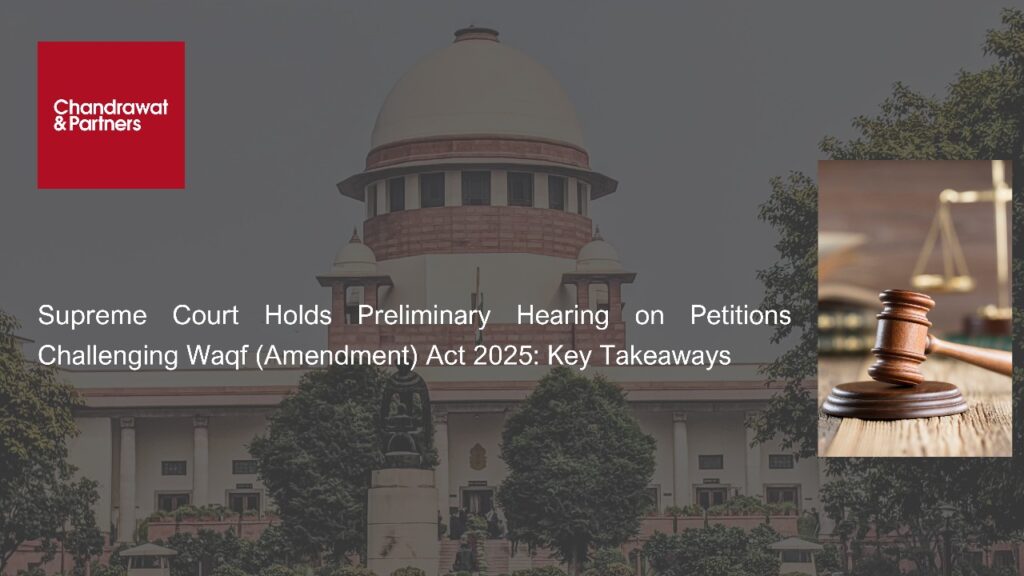Home > Recent Judgements > Supreme Court Holds Preliminary Hearing on Petitions Challenging Waqf (Amendment) Act 2025 – Key Takeaways from May 5 Session
May 05, 2025
Supreme Court Holds Preliminary Hearing on Petitions Challenging Waqf (Amendment) Act 2025 – Key Takeaways from May 5 Session
On May 5th, 2025, the Supreme Court of India conducted a preliminary hearing on a batch of petitions questioning the constitutional validity of the Waqf (Amendment) Act 2025. A three-judge bench comprising Chief Justice Sanjiv Khanna, Justice Sanjay Kumar, and Justice K.V. Viswanathan heard the matter as scheduled in the Court’s prior order.
Background of the Challenge
The Waqf (Amendment) Act 2025 introduces substantial reforms in the governance of waqf properties, including:
- Mandatory digitization and re-registration of all waqf properties
- Empowerment of district collectors to intervene in ownership disputes
- Inclusion of non-Muslim members in Waqf Boards and oversight bodies
Petitioners, including Muslim community organizations and public interest advocates, argue that these provisions:
- Violate the right to religious freedom under Article 25 and 26
- Enable unconstitutional state interference in religious affairs
Threaten the autonomy of Muslim religious institutions
Key developments from the session
- The bench noted that it had not yet had time to fully examine the Centre’s counter-affidavit.
- Concerns were raised over the stringent registration deadlines and disputes around ownership records.
- The bench deferred any interim orders, opting instead to list the matter before a bench led by Justice B.R. Gavai on May 15, 2025, for deeper consideration.
Government’s Position
The Union Ministry of Minority Affairs, in its affidavit, defended the amendments as measures for modernization and better governance. It also assured the Court that no appointments to waqf bodies would proceed under the new law until further hearings.
What’s Next?
- The matter will now be taken up again on May 15, 2025.
- The Court is expected to consider requests for interim relief and examine.
- constitutional arguments in detail.
Conclusion
The Supreme Court’s response to the petitions challenging the Waqf (Amendment) Act 2025 could set important precedents regarding religious autonomy, administrative reforms, and minority rights. While no decisive orders were passed on May 5, the hearing has laid the foundation for a crucial legal battle ahead.
For more information or queries, please email us at
enquiries@chandrawatpartners.com





